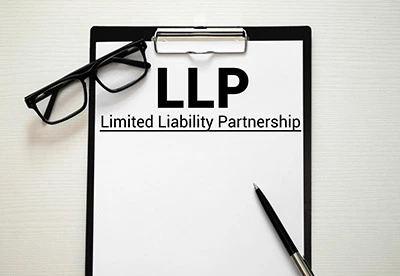
Documents Required
Talk to Adviser
Features
Share Transfer
Share transfer from one person to another person or one person to many or many to one person.
INR 5000 All Inclusive
INR 7142 30% Off
Basic
Private Limited Company Share Transfer: A Simplified Guide
Transferring shares in a Private Limited Company is a structured process that allows the transfer of ownership between shareholders. In simple terms, share transfer means that one shareholder passes their ownership rights (and related responsibilities) to another individual or entity. This process is governed by the Companies Act 2013 and relevant guidelines from the Ministry of Corporate Affairs (MCA).
At Taxinno, we help businesses navigate the share transfer process smoothly, ensuring all legal and regulatory requirements are met.
What is Share Transfer?
Share transfer is the process where an existing shareholder in a company transfers their shares to another individual or entity. This typically happens when someone wants to sell or give up their ownership stake in the business. Share transfers are treated like the transfer of any movable asset, but companies may impose conditions, especially in private limited companies, to control who can buy or sell shares.
Key Regulations for Share Transfer in Private Companies
In a Private Limited Company, share transfers are governed by certain rules to maintain the company’s private status and ensure proper governance. The Companies Act 2013, particularly Section 56(1) & (3), along with Rule 11 of the Companies (Share Capital and Debentures) Rules, 2014, outline how shares can be transferred.
Share Transfer Rules in Private Limited Companies
The Articles of Association (AOA) of a Private Limited Company play a significant role in share transfers. They define the terms and conditions for transferring shares and may include restrictions or special procedures for the transfer process.
Key Rules for Share Transfer:
- Pre-Emptive Rights: If a shareholder wishes to sell their shares, they must first offer them to the existing members of the company. The share price is typically determined by the company’s directors or auditor.
- Director’s Discretion: In some cases, the Articles of Association may allow the directors to refuse a share transfer to certain individuals, providing them with significant control over who can hold shares in the company.
Steps Involved in Share Transfer in a Private Limited Company
The process for transferring shares in a Private Limited Company is quite structured. Here’s a simplified breakdown:
- Check the Articles of Association (AOA):
Before starting, review the company’s AOA for any restrictions or special conditions on share transfers.
- Notify the Director:
The shareholder intending to transfer shares must formally notify the company’s director about their decision.
- Set the Share Price:
The share price is usually decided by the company’s directors or auditor and must be offered first to existing shareholders. If they aren’t interested, the shares can be offered to external parties.
- Notifying Shareholders:
All shareholders should be informed of the available shares, including the price and the deadline to express interest.
- Allocate Shares:
If any current shareholders are interested, they will be allocated shares first. If no interest is shown, the shares can be transferred to external buyers.
Documents Required for Share Transfer
Here are the documents needed for a share transfer in a Private Limited Company:
- Share Transfer Deed: A legal document signed by both the seller and buyer, which facilitates the transfer.
- Share Certificate: The original certificate representing the shares being transferred.
- PAN Card: A photocopy of the buyer’s PAN Card.
- Board Resolution: A resolution passed by the company’s Board of Directors approving the share transfer.
- No Objection Certificate (NOC): A letter from the seller consenting to the transfer.
- Indemnity Bond: A document that protects the company from any risks related to the transfer.
- Stamp Duty: The Share Transfer Deed must be stamped as per the applicable rates in the state.
How to Transfer Shares in a Private Limited Company
Transferring shares in a Private Limited Company follows a structured process. Here are the main steps:
- Initiate the Share Transfer: Notify the company’s director of the intention to transfer shares.
- Review the AOA: Check for any conditions or restrictions related to the share transfer.
- Set Share Price: Determine the price based on the company’s guidelines.
- Notify Shareholders: Inform all current shareholders about the transfer and give them the first option to buy the shares.
- Complete Transfer Documents: Both the seller and buyer must complete and sign the Share Transfer Deed (Form SH-4).
- Pay Stamp Duty: Ensure the Share Transfer Deed is stamped according to the Indian Stamp Act.
- Submit Documents: Submit the signed transfer deed and share certificates to the company for verification.
- New Share Certificate: Once the transfer is approved, the company issues a new share certificate to the buyer.
Why Choose Taxinno for Share Transfers?
At Taxinno, our team of experts can guide you through every step of the share transfer process. We ensure that all procedures are carried out according to legal standards, helping you avoid potential issues and ensuring compliance with company laws. Whether it’s reviewing the Articles of Association or helping with document preparation, we are here to support you.
Contact Taxinno today for expert assistance in managing share transfers in your Private Limited Company.
Frequently Asked Questions (FAQs) About Share Transfer
- What is share transfer? Share transfer is the process of transferring ownership rights and responsibilities of a company share from one shareholder to another.
- What regulations govern share transfer in private companies? Share transfers in private companies are governed by Section 56(1) & (3) of the Companies Act, 2013, and Rule 11 of the Companies (Share Capital and Debentures) Rules, 2014.
- How are share transfer rules decided in private companies? The Articles of Association (AOA) of a company determine the rules for share transfers.
- What are pre-emptive rights? Pre-emptive rights give existing shareholders the first option to buy shares before they are offered to external parties.
- Can a director refuse a share transfer? Yes, in some cases, directors may have the authority to refuse a share transfer, as outlined in the company’s AOA.
- What documents are needed for a share transfer? Documents include the Share Transfer Deed, Share Certificate, PAN card of the buyer, Board Resolution, and possibly an Indemnity Bond.
- Is stamp duty required for a share transfer? Yes, the Share Transfer Deed must be stamped according to the applicable state rates.
- How is the share price determined? The share price is usually set by the company’s directors or auditor and should be in accordance with the company’s AOA.













